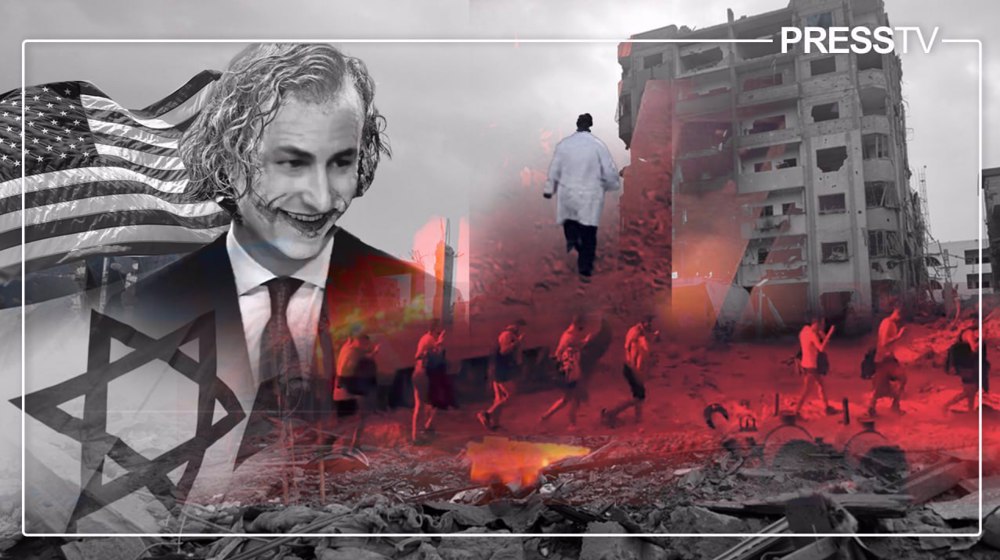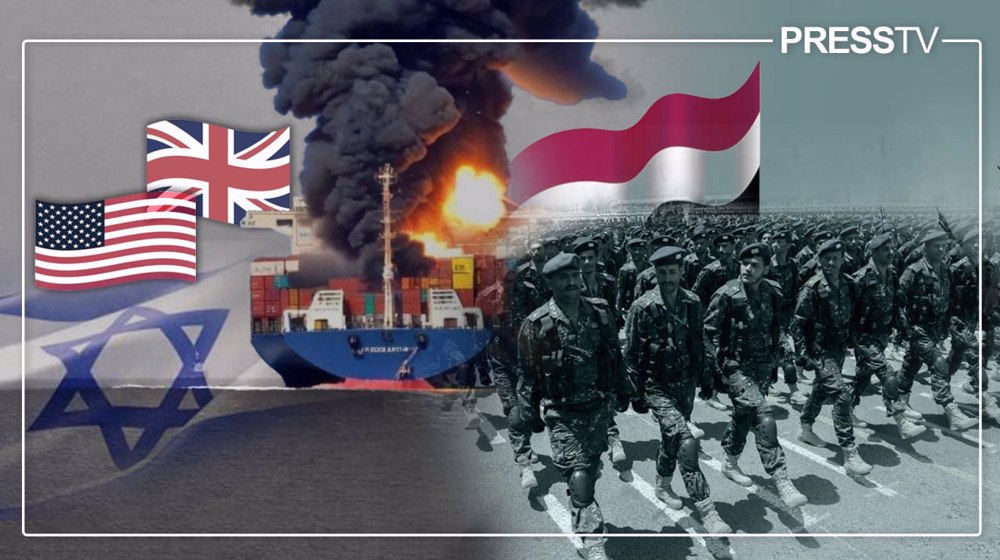Iran-Taliban talks: An effort to promote regional peace
Tehran has confirmed that it has been in talks with the Afghan Taliban in an effort to promote Afghan and regional peace. Analysts say the move would also prevent the region from turning into a hotbed for Takiri terrorist groups, especially Daesh, which has already gained a foothold in Afghanistan as well.
Daesh terrorists, who have been militarily defeated in Iraq and Syria, have been increasingly active in Afghanistan, clashing with both the Kabul government and Taliban militants and alarming neighboring nations, including Iran.
Daesh has established a foothold in eastern and northern Afghanistan. The terrorist group has mostly been populating the eastern province of Nangarhar, from where it has carried out high-profile, brutal attacks at major population centers across the country.
Leader of the Islamic Revolution Ayatollah Seyyed Ali Khamenei in a speech last year said that the United States had been relocating the terror group from the Middle East to the South Asian country in an attempt to justify its military presence in the region.
In recent weeks, senior officials in Tehran have stressed that Iran has been holding talks with the Taliban with the knowledge of the Afghan government in order to prevent continued foreign presence in the region and restore peace to the violence-wracked country.
Bahram Qassemi, the Iranian Foreign Ministry spokesman, said in a news conference last month that the talks were intended to set the parameters for negotiations between the Taliban and the Afghan government. He noted the Taliban “are in control of 50 percent of Afghanistan” and had sought the meetings with the Iranian government.
The remarks came a day after Iranian diplomats held a meeting with a Taliban delegation in Tehran, on December 30. Abbas Araqchi, the Iranian deputy foreign minister for political affairs, headed the Iranian negotiating team.
On January 5, Araqchi visited Kabul to brief senior Afghan officials, including President Ashraf Ghani, on Iran’s talks with Taliban representatives.
Ali Shamkhani, the secretary of Iran’s Supreme National Security Council, during a December 26, 2018 visit to Kabul also said that Tehran was in talks with the Taliban "to help curb the security problems in Afghanistan."
"The Afghan government has been informed of the communications and talks carried out with the Taliban, and this process will continue," Iran’s top security official added.
On November 28, addressing the Geneva Conference on Afghanistan, Iranian Foreign Minister Mohammad Javad Zarif also called on the international community to facilitate “inclusive” dialog between the Taliban and the Afghan government in a bid to restore peace to Afghanistan.
In his speech, the top Iranian diplomat also warned against the continued presence of US and NATO forces in Afghanistan, which has failed to restore security to the country 17 years after the US invasion. “The presence of foreign forces has never brought stability in our region and has historically provided a recruiting ground for extremists.”
Iran’s foreign minister also said that the Daesh emergence had radicalized local armed groups in a competition over followers and recruits. “A new challenge is the introduction of Daesh to Afghanistan, which has led to more bloodshed and introduced dangerous sectarian tendencies.”
“Believe me, as no one gained from introducing and supporting Daesh and other extremists in Syria and Iraq, no one will gain from introducing them to Afghanistan and Central Asia. This horrific trend needs to be arrested before it reaches catastrophic proportions,” he noted.
Appreciating Iranian peace efforts, former Afghan President Hamid Karzai said in an interview with ISNA news agency on January 10 that the Iran-Taliban talks were beneficial to Afghanistan. “Iran is in contact with the Taliban, which is definitely beneficial to Afghanistan,” he said.
The US Department of Defense also in a recent report sent to Congress acknowledged Iran’s key role in restoring peace and stability to war-torn Afghanistan, backtracking on Washington’s earlier claims that Tehran supports the local Taliban militant group.
“Iran seeks a stable Afghan government that is responsive to Iranian goals, the elimination of ISIS-K, the removal of the US/NATO presence, and the protection of Iranian concerns, such as water rights and border security.”
The developments come as Kabul government has stepped up efforts to convince the Taliban to end the 17-year militancy amid Washington’s failures on the battleground.
The Taliban’s five-year rule over at least three quarters of Afghanistan came to an end with a US-led invasion in 2001; but 17 years on, the militant group continues to be active on much of Afghan soil. The Taliban have strengthened their grip over the past three years, with the government in Kabul controlling just 56 percent of the country, down from 72 percent in 2015, a recent US government report showed.
President Ghani disclosed in November last year that nearly 29,000 soldiers and police personnel had been killed in battles against Taliban and other militant groups since 2015. Afghan Defense and Interior Ministry chiefs informed the national parliament in October 2018 that around 40 military and police personnel were being killed every day in Taliban attacks.
The US, too, has been holding talks with the Taliban. US State Department's special envoy Zalmay Khalilzad has said he had held "productive" meetings in Abu Dhabi with Afghan and international partners "to promote intra-Afghan dialogue towards ending the conflict."
Khalilzad said the Taliban seek an agreement on the withdrawal of foreign forces, while the US wants assurances from the militant group that its forces would not be attacked.
The talks are the latest in a flurry of diplomatic efforts aimed at putting an end to the war in Afghanistan, which began with the US-led invasion 17 years ago.
The United States led a coalition in invading Afghanistan in October 2001 after the September 11 attacks. US forces have remained bogged down there through the presidencies of George W. Bush, Barack Obama, and now Donald Trump.
Trump has ordered the start of withdrawing some 7,000 troops from Afghanistan, about half of the total number of American boots on the ground in the war-torn country.
Taliban militants have pledged to step up their attacks unless US forces fully withdraw from Afghanistan.
How Los Angeles’ pistachio tycoons facilitated and profited from wildfires
Iraqi PM: Iran was in Syria to fight terrorism; presence requested by Damascus
Hamas: Israel's massacre in Jenin camp won’t break resistance
60 bodies recovered from abandoned South African gold mine: Police
Biden administration ‘quietly’ circumnavigating own ban on TikTok: Report
Iran Navy takes delivery of first advanced ‘signals-intelligence’ destroyer
Italian TV exposes Israeli manipulation of EU institutions
UK anti-corruption minister Siddiq resigns over links to Bangladesh ‘embezzlement probe’
















 This makes it easy to access the Press TV website
This makes it easy to access the Press TV website